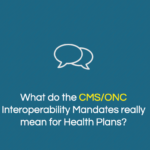North Carolina will leverage real-time data and screening questions to help providers better understand patients’ social determinants of health.
The North Carolina Department of Health and Human Services (NC DHHS) is partnering with Phreesia, a patient intake platform, to address individuals’ social determinants of health using real-time data and screening questions.
Healthcare organizations across the state can now use Phreesia to deliver North Carolina’s Standardized Social Determinants of Health Screening Questions and identify patients with unmet social needs. The platform can send real-time alerts to providers and care coordinators about patients’ individual needs and give a more holistic view of patients’ health.
This collaboration will help connect individuals in North Carolina with critical services. NC DHHS reports that more than 1.2 million North Carolinians cannot find affordable housing, and one in 28 of the state’s children under the age of six is homeless.
The agency also notes that North Carolina has the eighth highest rate of food insecurity in the US, and in some counties, one in three children live in food insecure households.
Want to publish your own articles on DistilINFO Publications?
Send us an email, we will get in touch with you.
Through the partnership, providers will be able to use technology that allows patients to answer questions honestly and privately, as well as real-time alerts and data that will lead to more meaningful visits. Providers will also have access to analytics and reporting that will help them better understand their patient populations.
As part of this project, North Carolina is currently deploying NCCARE360, the first statewide coordinated network with a shared technology connecting healthcare and social service providers. The use of this network will make it easier to connect people to resources when healthcare professionals identify patients’ social needs.
“To advance the health and well-being of North Carolinians, we need to build a coordinated, whole person-centered system that addresses both medical and non-medical drivers of health,” said DHHS Secretary Mandy K. Cohen, MD.
“Our partnership with Phreesia will make it easier for doctors and other healthcare providers to ask patients about their non-medical health needs, which are a critical component of their overall health.”
The collaboration is part of North Carolina’s Healthy Opportunities Initiative, which aims to create a statewide infrastructure and framework that can support innovation in the private sector and promote opportunities for health for all individuals in North Carolina.
The initiative has already leveraged several strategies to achieve more holistic patient care, including creating a statewide interactive map of social determinants indicators, and building a statewide resource platform that connects patients with unmet social needs to community services.
Addressing individuals’ social determinants has been linked to reduced costs, improved outcomes, and increased patient satisfaction. A 2018 study showed that payer organizations that account for the social determinants of health and connect patients to services that meet their social needs could reduce spending by approximately 11 percent per year.
More recently, a separate study demonstrated that Medicaid members who received community-based services, especially services that stress screening for and addressing the social determinants of health, experienced a 26.3 percent drop in hospital admission rates.
The collaboration between NC DHHS and Phreesia will enable clinicians throughout the state to deliver more holistic, quality patient care.
“We’re excited to collaborate and support NC DHHS on this important initiative,” said Phreesia CEO Chaim Indig. “Helping providers identify patients’ social needs allows us to further our mission of improving the healthcare experience, and we look forward to continuing this work in communities across the country.”
Date: September 18, 2019
Source: Health IT Analytics







